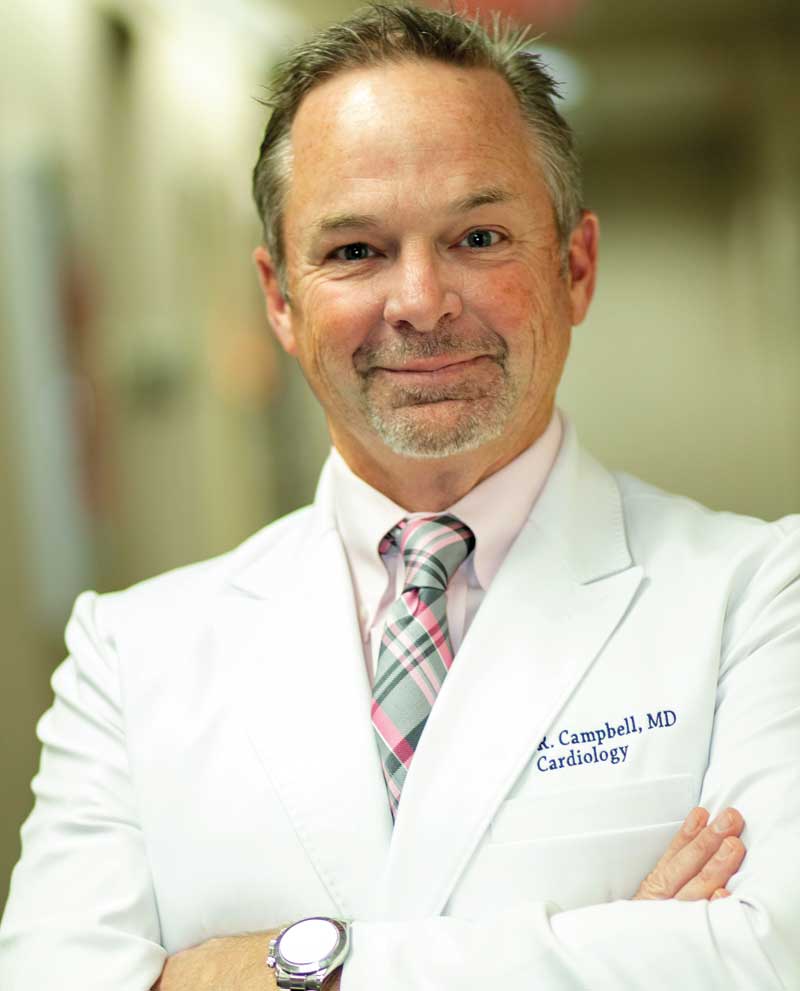Health First Cardiologist Dr. Kevin Campbell Highlights Heart Disease in Women
By Space Coast Daily // March 23, 2022
To consider your own risk of heart disease, visit HF.org/Heart

Dr. Kevin Campbell says Women’s History Month is a good time to ask, why is heart disease believed to be a man’s health burden? It’s the No. 1 killer of American women.
BREVARD COUNTY – Imagine someone suffering from advanced heart disease. You’re probably picturing a man. If you are a woman, don’t be fooled, says Health First Cardiologist Kevin Campbell, MD.
“For the longest time, we all thought that heart disease was a disease of men. It’s just not true,” he says. “Because there are disparities in treatments and care, there are more women than men who die of heart disease every year in the United States.”
Despite efforts like Dr. Campbell’s to raise awareness, little more than half (56%) of women recognize that heart disease is their No. 1 killer, according to the CDC.
The most common heart attack symptom in women is the same as men – chest pain, pressure or discomfort. But secondary and alternate symptoms diverge. Women are more likely than men to complain of pain in the neck, jaw, shoulder or back, and experience sweating, fatigue or nausea.
“Women tend to present differently. Their symptoms may be a little atypical. Sometimes women may just have pain in the back. They may have a feeling of uneasiness, or just not feel right – a feeling of dread,” he says.
Women Should Know Risk Factors
The course of treatment for women is likelier to be less intensive and interventional. For instance, cardiac rehabilitation is strongly correlated with improved recovery and prognoses for women with heart disease, but women are less likely than men to be referred for cardiac rehab.
Dr. Campbell says its important for primary care providers as well as cardiologists to probe deeper when a woman speaks up about a strange or vague discomfort, even uneasiness.

It’s also important for patients to understand and take stock of their risks. The following risk factors for women should be assessed early:
■ Blood pressure: Not only is high blood pressure correlated with heart disease, it can damage major organs.
■ Diabetes: Americans with diabetes are nearly twice as likely to develop heart disease; heart disease begins at a younger age and diabetics live with it longer.
■ High cholesterol: The human body produces cholesterol, but we ingest it, too, when we eat animal products (meat and dairy), and the extra cholesterol in our bodies builds up along the walls of arteries and constricts blood flow to the heart and other organs.
■ Smoking: Americans who quit smoking reduce their risk for heart disease immediately. Within a year, the risk of heart attack drops dramatically.
■ Overweight or Obese: Carrying extra weight is strongly correlated with heart disease, and the more weight, the higher the risk.
■ Family history: Siblings’ risk of cardiovascular disease diagnosis increases about 40% when a brother or sister is diagnosed, but about 60 to 75% when a parent is diagnosed, according to one study.
“These are really important to know,” says Dr. Campbell. “If you know the risk factors, you can start modifying the risk factors – if you can modify the risk factors, we’re able to prevent disease in the first place.”
To consider your own risk of heart disease, visit HF.org/Heart and take our quiz, “Are you at risk for Heart Disease?”













